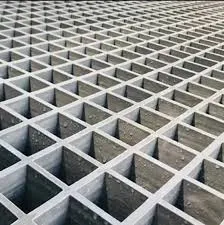
-
 Afrikaans
Afrikaans -
 Albanian
Albanian -
 Amharic
Amharic -
 Arabic
Arabic -
 Armenian
Armenian -
 Azerbaijani
Azerbaijani -
 Basque
Basque -
 Belarusian
Belarusian -
 Bengali
Bengali -
 Bosnian
Bosnian -
 Bulgarian
Bulgarian -
 Catalan
Catalan -
 Cebuano
Cebuano -
 China
China -
 China (Taiwan)
China (Taiwan) -
 Corsican
Corsican -
 Croatian
Croatian -
 Czech
Czech -
 Danish
Danish -
 Dutch
Dutch -
 English
English -
 Esperanto
Esperanto -
 Estonian
Estonian -
 Finnish
Finnish -
 French
French -
 Frisian
Frisian -
 Galician
Galician -
 Georgian
Georgian -
 German
German -
 Greek
Greek -
 Gujarati
Gujarati -
 Haitian Creole
Haitian Creole -
 hausa
hausa -
 hawaiian
hawaiian -
 Hebrew
Hebrew -
 Hindi
Hindi -
 Miao
Miao -
 Hungarian
Hungarian -
 Icelandic
Icelandic -
 igbo
igbo -
 Indonesian
Indonesian -
 irish
irish -
 Italian
Italian -
 Japanese
Japanese -
 Javanese
Javanese -
 Kannada
Kannada -
 kazakh
kazakh -
 Khmer
Khmer -
 Rwandese
Rwandese -
 Korean
Korean -
 Kurdish
Kurdish -
 Kyrgyz
Kyrgyz -
 Lao
Lao -
 Latin
Latin -
 Latvian
Latvian -
 Lithuanian
Lithuanian -
 Luxembourgish
Luxembourgish -
 Macedonian
Macedonian -
 Malgashi
Malgashi -
 Malay
Malay -
 Malayalam
Malayalam -
 Maltese
Maltese -
 Maori
Maori -
 Marathi
Marathi -
 Mongolian
Mongolian -
 Myanmar
Myanmar -
 Nepali
Nepali -
 Norwegian
Norwegian -
 Norwegian
Norwegian -
 Occitan
Occitan -
 Pashto
Pashto -
 Persian
Persian -
 Polish
Polish -
 Portuguese
Portuguese -
 Punjabi
Punjabi -
 Romanian
Romanian -
 Russian
Russian -
 Samoan
Samoan -
 Scottish Gaelic
Scottish Gaelic -
 Serbian
Serbian -
 Sesotho
Sesotho -
 Shona
Shona -
 Sindhi
Sindhi -
 Sinhala
Sinhala -
 Slovak
Slovak -
 Slovenian
Slovenian -
 Somali
Somali -
 Spanish
Spanish -
 Sundanese
Sundanese -
 Swahili
Swahili -
 Swedish
Swedish -
 Tagalog
Tagalog -
 Tajik
Tajik -
 Tamil
Tamil -
 Tatar
Tatar -
 Telugu
Telugu -
 Thai
Thai -
 Turkish
Turkish -
 Turkmen
Turkmen -
 Ukrainian
Ukrainian -
 Urdu
Urdu -
 Uighur
Uighur -
 Uzbek
Uzbek -
 Vietnamese
Vietnamese -
 Welsh
Welsh -
 Bantu
Bantu -
 Yiddish
Yiddish -
 Yoruba
Yoruba -
 Zulu
Zulu
large diameter fiberglass pipe
The Advantages of Large Diameter Fiberglass Pipe
In recent years, the use of large diameter fiberglass pipe has gained popularity in various industries due to its numerous advantages over traditional materials such as steel and concrete. Fiberglass reinforced polymer (FRP) pipes are crafted from a combination of glass fibers and resins, giving them unique properties that make them suitable for a wide range of applications, including water and wastewater management, chemical processing, and construction.
One of the most significant benefits of large diameter fiberglass pipes is their lightweight nature. Compared to steel or concrete pipes, fiberglass pipes are considerably lighter, which simplifies handling and installation. This reduced weight can lead to lower transportation costs and easier maneuverability on job sites, ultimately speeding up project timelines.
Another advantage is the corrosion resistance of fiberglass pipes. Unlike metal pipes, which can suffer from rust and deterioration when exposed to harsh environments or corrosive substances, fiberglass maintains its integrity over time. This property makes it an ideal choice for transporting chemicals, wastewater, and other aggressive materials, thus ensuring longevity and reduced maintenance costs.
Additionally, large diameter fiberglass pipes offer superior flow characteristics. The smooth interior surface of fiberglass reduces friction, leading to less energy loss during fluid transport. This improvement in flow efficiency can help lower energy consumption and enhance the overall performance of the system, especially in large-scale applications where water and fluids are circulated over long distances.
large diameter fiberglass pipe

Moreover, fiberglass pipes exhibit excellent thermal insulation properties. This attribute helps in maintaining the desired temperature of the fluids being transported, whether hot or cold. In applications such as chilled water systems or steam lines, this insulation can be particularly beneficial in reducing energy consumption and enhancing system efficiency.
Safety is another critical consideration, and fiberglass pipes are non-conductive, which means they do not pose a risk of electrical hazards. This feature makes them safer for use in environments where electrical conductivity could lead to dangerous situations.
As industries become increasingly focused on sustainability, the environmental benefits of fiberglass pipes cannot be overlooked. The manufacturing process of fiberglass is designed to minimize waste, and the materials used can often be recycled. Additionally, the longevity and durability of fiberglass pipes contribute to reducing the need for frequent replacements, thereby lowering the overall environmental impact.
In conclusion, large diameter fiberglass pipes are a modern solution that offers multiple advantages, including lightweight construction, corrosion resistance, superior flow efficiency, excellent insulation properties, and enhanced safety. As industries continue to evolve, the adoption of fiberglass pipes is likely to grow, making them a critical component in future infrastructure developments.









